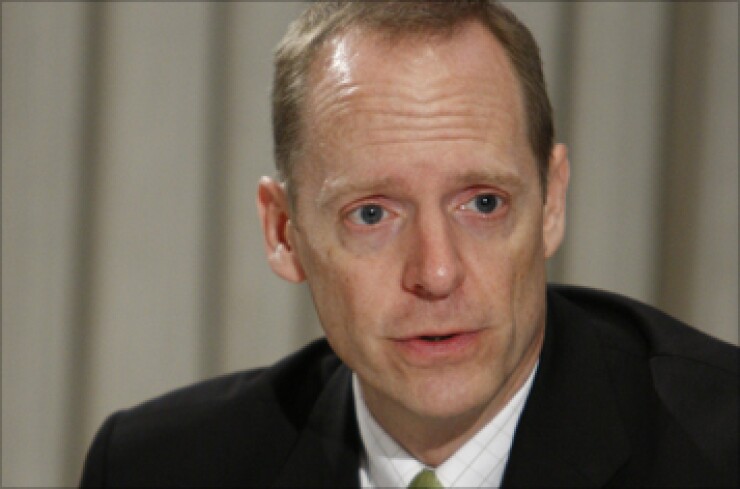
CHICAGO — When it comes to sin tax revenue, it's time to sober up.
Cash-strapped governments like Chicago and Illinois are turning to taxes from tobacco, gambling and marijuana as a politically palatable way to offset chronic budget shortfalls. But "sin taxes" are no panacea.
"The average person thinks sin taxes generate a lot more than they do," said Scott Pattison, executive director of the National Association of State Budget Officers.
Pattison was among the experts, economists and government officials who gathered here last week at a conference, "Sin Taxes: The Sobering Fiscal Reality," hosted by Chicago-based fiscal watchdog group the Civic Federation and the Federal Reserve Bank of Chicago.
Tobacco and gambling revenues, for example, are expected to decline over the long term. Gambling, and even higher sin tax rates, come with increased criminal activity that could carry a hefty price tag for a city like Chicago. And the cost of regulation and compliance can eat up a big chunk of the revenue.
"The money is coming in but it really doesn't solve the budget problem," said Pattison. "It's also a distraction from real fiscal problems."
Among sin taxes, marijuana is at the cutting edge, with states across the country watching closely as Colorado and Washington pioneer legalized recreational marijuana programs. California could be next, participants said. But the financial reality has so far fallen short of expectations, according to Andrew Freedman, Colorado's director of marijuana coordination.
"I think there are a lot of great arguments to legalize marijuana," said Freedman. "I don't think taxes are one of them."
In 2014, the first full year of legalized recreational pot, Colorado collected just over $63 million in taxes from both medical and recreational marijuana sales. It spent $42 million, the bulk of it for regulatory oversight and youth marijuana use and prevention programs.
"You're not going to be solving education, you're not going to be solving transportation, not even close," said Freedman. "You're talking about building one or two schools."
In Illinois, lawmakers passed legislation to legalize medical marijuana as a four-year pilot program last year, but it has yet to launch.
Like Freedman, Illinois state Rep. Lou Lang, D-Skokie, who crafted the legislation, said that money cannot be the reason for legalizing marijuana.
"For me this is not about the revenue; this is about helping very sick people improve their quality of life and keeping an 85-year-old granny with colon cancer from having to go to some back alley," said Lang, who spent six years shuttling the legislation through the General Assembly.
Cigarette and tobacco taxes are often politically popular because they lead to a decline in consumption, though experts disagree on the size of the decline. They can also be a significant source of revenue for a government.
In Cook County, home to Chicago, cigarette taxes are the largest tax contributor to the county's coffers behind sales and property taxes, according to county chief financial officer Ivan Samstein. They generated $131 million in fiscal 2014 and are estimated to bring in $134 million in 2015.
"A lot of us have raised cigarette taxes over the last few years," said Samstein. "Tobacco is a not insignificant area that many of us have looked to."
Cook has the highest state-local combined tax rate in the country, at $6.16 per pack.
But over the long term the county is projecting a steep decline, even steeper than the projected national decline, which is driven largely by health concerns that make smoking less popular.
In Cook County's case, the size of the tax is driving a decline that's double the federal rate, Samstein said.
"Each time there's a tax increase we're seeing the real impacts of decline," said Samstein.
The high smoke tax rate has sparked a major "border effect," sending smokers and cigarette traffickers across county and state lines to take advantage of lower prices.
"Unambiguously, raising taxes here in Chicago has had a border effect," Samstein said. "There's also a large and significant black market that's developed," he said, adding that the county plans to hire a full-time cigarette-sniffing dog to aid enforcement efforts.
"It reinforces the need for enforcement techniques if you're going to be such an outlier compared to your neighbors," he said.
Since Illinois raised its cigarette tax by $1 a pack in 2012, the state has seen a spike in smuggling, said Brian Cooper, special agent with the Illinois Department of Revenue and acting chief of criminal investigations.
"We have seen a higher increase in smuggling activity we saw prior to 2012," Cooper said, estimating that cigarette trafficking costs $5 billion in state and federal tax revenue annually.
"Criminals that are running cigarettes can double their profits," said Cooper, adding it can be more lucrative than dealing drugs, depending on the border states' tax structures.
Of all the so-called sin taxes, gambling revenue is often seen as the most lucrative. But that too, often fails to live up to original expectations. Like tobacco, it's projected to decline over the long term. It also comes with significant social costs for governments, experts said.
Nationally, gambling revenue contributes roughly 1% to state general funds, according to Pattison.
Gambling revenue increased 0.6% in fiscal 2014, but declined 0.8% after adjusting for inflation. Casino admissions nationally are down.
"If gambling revenue is intended to support part of the overall budget, gaps will emerge in future years," said Lucy Dadayan, senior policy analyst at the Rockefeller Institute. "It's not a solution to the never-ending press to balance the budget."
In Illinois, gambling and lottery revenues made up 3.2% of general fund revenue in 2015 and are projected to make up 3.5% in 2016, according to Peter Matuszak, senior policy analyst at the Civic Federation.
The state's gambling revenue has been declining since 2007, when it brought in $1.3 billion, or 5.5% of the state's general fund. It declined to $1.01 billion in fiscal 2013; $999 billion in 2014; and is estimated to fall to $982 million in 2015.
"Gambling in Illinois is a significant form of revenue but it's not the revenue solution to all of the state's problems," said Mark Ostrowski, director of the Illinois Gaming Board.
Chicago politicians have been pushing for a city-based casino for years to help plug chronic shortfalls. The desire for such a facility was one area of agreement for Chicago Mayor Rahm Emanuel and his opponent, Jesus "Chuy" Garcia, in the mayoral race that ended Tuesday.
Matuszak said the amount of revenue that would be generated by a Chicago casino remains uncertain after taxes and the costs of management and regulation.
He estimated a new facility would bring in $662 million gross revenue that would be reduced to $478 million once state taxes were paid. From that the city would have to pay the costs of managing and operating the facility, as well as covering the social costs.
"It would not be within the magnitude of solving all of the city's problems, and it would come with a lot of costs," said Matuszak.
Those include increased prostitution, narcotics and child neglect, problems that plague most casinos, Ostrowski said.
For governments looking for new ideas for fresh dollars, revenue should not be the only consideration, said William Testa, vice president of the Federal Reserve Bank of Chicago.
"It's politically easy to impose sin tax, because it's intended to discourage some bad behavior and raises money to compensate when these private behaviors generate costs to society as a whole," said Testa. "But the devil is in the details," he said. "Issues of fairness, effectiveness and how the revenue is used all bear careful attention."





